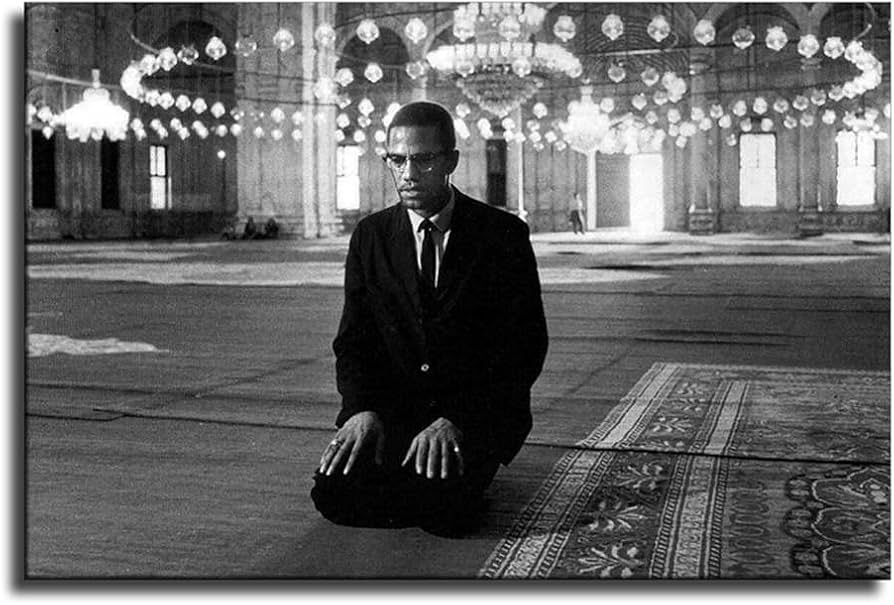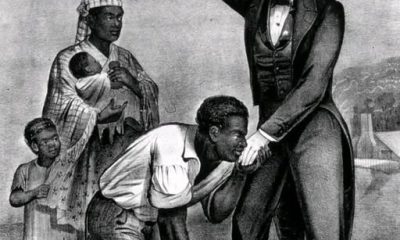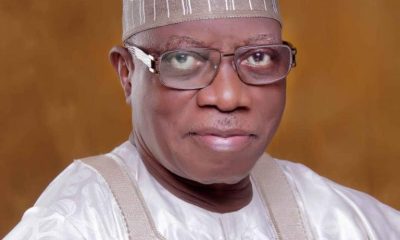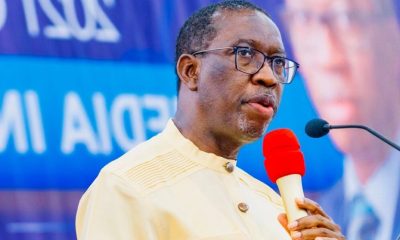Lifestyle
An Aggressive Voice for Change
Published
1 year agoon

By Oguine Daniel
Every May 19, many Black Americans and Africans celebrate the late African-American revolutionist, Muslim minister, and human rights activist Malcolm X.
Although we are nearing the end of the year, our country has been experiencing such hardships that our hearts long for saviors— for the days of true activists and revolutionaries, for the rise of aggressive heroes like the late Malcolm X.
Once associated with hoodlums, criminals, and men considered the outcasts of society, Malcolm X, formerly known as Malcolm Little, was involved in various illicit activities as a youth, ranging from illegal gambling and drug dealing to burglary and robbery. In 1946, Malcolm was sentenced to ten years in prison for burglary. It was in prison that this rough, jagged stone was refined and polished by the Nation of Islam, transforming him into a gem unlike any other.
After embracing his newfound faith and the extensive knowledge that accompanied it, Malcolm added the letter “X” to his name to signify the loss of his family’s original African name, stolen during the days of slavery.
The name “Malcolm X” echoed throughout the United States— a terror to the white government of his time, an arch-enemy of the Ku Klux Klan (a white supremacist terrorist organization notorious for lynching and hanging Black Americans), and a critic of Black activists who, in his view, were not as aggressive in their pursuit of equality and freedom for Black people.
READ ALSO: FG excludes religion, ethnicity from 2023 Census questionnaire scheduled for May 3
Malcolm X’s weapon of choice was words. First, as a spokesman for the Nation of Islam, and later as a Muslim minister and human rights activist, he delivered life-changing, purpose-driven speeches to great throngs of African Americans at rallies, interviews, and talks. He showed a depressed and oppressed Black population that there was another way to perceive and respond to the hate and discrimination they endured.
In 1962, addressing police brutality, Malcolm X famously said: “We are oppressed, we are exploited, and we are downtrodden. We are denied not only civil rights but human rights. So the only way we are going to get some of this oppression and exploitation away from us is to come together against the common enemy… Who taught you to hate the texture of your skin? Who taught you to hate the texture of your hair? Who taught you to hate the color of your skin to such an extent you bleach to look like the white man? … Stop sweet-talking it. Tell him how you really feel, tell him what kind of hell you’ve been catching, and let him know that if he is not ready to clean his house up, he shouldn’t have a house—it should catch on fire and burn down.”
Such were the words he used to inspire and motivate Black people, and during his time as a speaker for the Nation of Islam, the congregation grew significantly, with many Black Americans converting and joining his movement.
Despite his reform, Malcolm X was not without fault. He often criticized his counterparts, such as the great Martin Luther King Jr., commonly known as Dr. King, who advocated for peaceful protests as a means to achieve equality.
Malcolm X once remarked about King’s movement: “The only revolution in which the goal is loving your enemy, is the Negro revolution… That’s no revolution.”
Malcolm desired a public debate with Dr. King on their methods of activism and proposed this challenge several times. However, Dr. King, though a magnificent public speaker and orator himself, consistently refused, stating that his work focused on positive action rather than engaging in negative debate.
READ ALSO: Lamido tackle Tinubu’s vacation amidst economic hardship in Nigeria
It wasn’t until Malcolm X left the Nation of Islam in 1964 that he began to appreciate the efforts of King’s camp.
On February 21, 1965, Malcolm X was shot multiple times and died from his wounds. His assassination took place in Manhattan, New York City, as he prepared to address the Organization of Afro-American Unity at the Audubon Ballroom in Washington Heights. He was only 39 years old. Three members of the Nation of Islam were charged, tried, and convicted of the murder, receiving indeterminate life sentences.
Conspiracy theories have since suggested that the FBI and CIA were involved in the planning and backing of his assassination, as Malcolm X’s movement was seen as a threat to these agencies.
Though dead, as a martyr he became a symbol and inspiration for Black power, Black self-defense, Black economic autonomy, and racial pride. Many of the advancements made in these areas by Black Americans can be credited to the life, actions, and words of Malcolm X.
After his death, Martin Luther King Jr. said, “While we did not always see eye to eye on methods to solve the race problem, I always had a deep affection for Malcolm and felt he had a great ability to put his finger on the existence and root of the problem. He was an eloquent spokesman for his point of view, and no one can honestly doubt that Malcolm had a great concern for the problems we face as a race.”
Imagine what we could accomplish as a country if we had one, two, ten, fifty, or a hundred like Malcolm X, individuals who possess the commitment to bring about change, the courage to stay the course despite challenges, and the wisdom to seek and acquire the knowledge necessary to effect that change. The feats we would accomplish, the transformation we would bring.
Trending

 Football1 week ago
Football1 week agoChampions League: 12 Clubs knocked out as group phase ends

 News7 days ago
News7 days agoTinubu approves purchase of 2 new satellites to strengthen Nigeria’s digital infrastructure

 Comments and Issues1 week ago
Comments and Issues1 week agoUN Secretary-General Guterres: Rule of Law being replaced by Law of the Jungle

 Comments and Issues1 week ago
Comments and Issues1 week agoBeyond Hope: Why External Pressure Cannot Cure Internal Colonialism

 Comments and Issues1 week ago
Comments and Issues1 week agoYakubu Mohammed: Exit of a good man

 Comments and Issues1 week ago
Comments and Issues1 week agoOkowa, daughter and politics as family business

 Latest1 week ago
Latest1 week agoKano governor’s aide vows to expose ‘true betrayers’ amid party disputes

 Comments and Issues1 week ago
Comments and Issues1 week agoEchoes After Taraba

